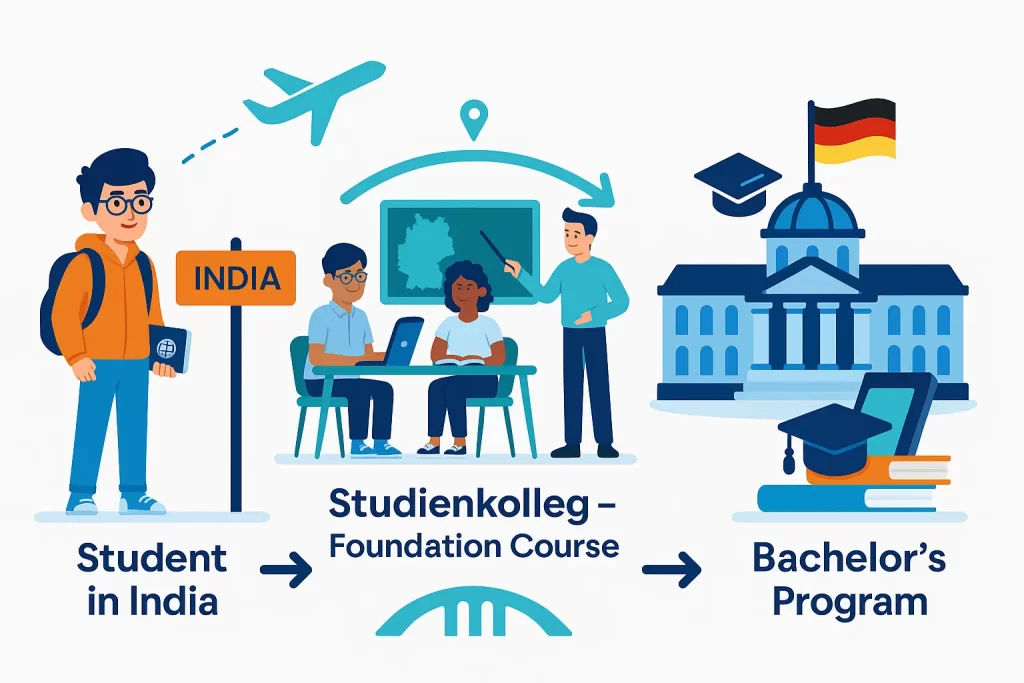Step 1- Select the Studienkolleg Course That Aligns with Your Goals.
Before applying to a Studienkolleg, take time to consider which course track best aligns with your university goals. Studienkollegs offer subject-specific programs, and the course you choose now will determine which bachelor’s degrees you’ll be eligible for later on.
Here’s a quick look at the main Studienkolleg course options:

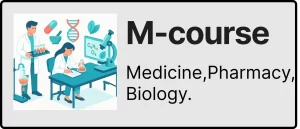
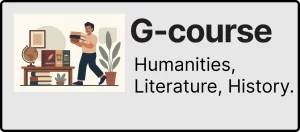
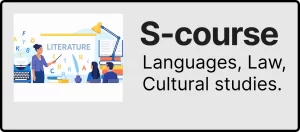
Studienkolleg courses are stream-specific, based on what degree you want to pursue.
👉 Choose wisely—your Studienkolleg track shapes your future study options in Germany.
Step 2: Check Eligibility Criteria.
The first and most crucial step is to check whether your school-leaving certificate qualifies you to study in Germany. Not all qualifications from every country are directly accepted by German universities.
Check If You Need Studienkolleg.
To find out if you qualify for direct university admission or need to attend a Studienkolleg, visit the official German evaluation portal:
👉 Anabin Database
This tool helps you verify whether your 12th-grade or diploma certificate is equivalent to the German Abitur.
Basic Eligibility Requirements for Studienkolleg:
- Submitting outdated or incomplete bank statements.
- Not opening the blocked account on time.
- A recognized school-leaving certificate.
- Proof of language proficiency (usually German B1/B2 for public Studienkolleg)
- Good grades in relevant subjects (e.g., Physics for T-Kurs, Biology for M-Kurs, Economics for W-Kurs).
German Language Requirements for Studienkolleg.
Since Studienkolleg programs are primarily taught in German, students are expected to have at least an A2 or B1 level of language proficiency before applying. To improve your chances of admission, it’s a smart move to take a German language course that helps you meet this requirement.
At Amratpal A Vision, we offer well-structured German classes from A1 to B2, designed specifically for students planning to study in Germany. With the right guidance and support, learning German becomes easier—and qualifying for Studienkolleg becomes achievable.
Step 3- Documents Required for Studienkolleg Application
Each Studienkolleg in Germany has its own application process and document checklist. That’s why it’s essential to contact the specific Studienkolleg where you plan to apply and confirm their exact requirements.
Common Documents You’ll Likely Need:
- Valid passport
- 12th-grade certificate or equivalent
- Transcripts (translated to German or English)
- APS Certificate (mandatory for Indian applicants)
- Language certificate (German B1/B2 or English)
- Motivation letter / SOP
- Passport-size photographs
- CV/resume (sometimes required)
- Proof of application fee payment (if applicable).
We will guide you on what to submit and how. Don’t let missing documents delay your dream!
Get expert support from Amratpal A Vision.
Step 4: Choose Between Public and Private Studienkolleg in Germany.
When choosing a Studienkolleg in Germany, one of the key decisions you’ll make is whether to attend a public or private institution. Both can prepare you for university admission, but they differ significantly in structure, cost, and recognition.
| Public Studienkolleg in Germany |
Private Studienkolleg in Germany |
| The government funds public Studienkolleg and connects them to public universities in Germany. |
Privately run institutions with tuition fees that vary by school. |
| Students enjoy tuition-free education, with only small fees for registration and study materials. |
Students face an easier admission process with less competition. |
| All German public universities officially recognize the certificates issued. |
These schools often keep class sizes small and provide more personalized support.
|
| Many students apply each year, which makes the competition for spots intense. |
Some German universities don’t recognize certificates from private Studienkolleg. |
| These programs suit students who have strong academic backgrounds and solid German skills. |
Always check if your target university accepts the certificate before you apply.
|
| Getting a head start and strengthening your German skills can greatly increase your chances of admission. |
This path suits students who need flexibility or didn’t qualify for public Studienkollegs.
|
| This route offers an excellent opportunity for those aiming to study at a top public university in Germany. |
Many private Studienkollegs offer quicker admission processes and multiple intakes each year.
|
Step 5: Submit Your Application Through uni-assist or Directly to the University.
There are two primary ways to apply to a Studienkolleg: through uni-assist or by submitting your application directly to the university.
uni-assist is a common platform many German universities use to assess international applications. It’s especially helpful if you’re applying to multiple universities at once.
For some universities or private Studienkolleg, you’ll apply directly by submitting documents to their admissions office. This method can be quicker but requires careful attention to each institution’s specific requirements.
Ready to take the next step?
Whether you’re applying through uni-assist or directly to a university, understanding the process and preparing the right documents is key.
Start early, stay on track, and improve your chances of getting into your dream Studienkolleg in Germany.
Not sure where to begin? Amratpal A Vision is here to help you every step of the way.
Step 6: Receive Your Admission Offer.
Once your application is submitted—whether through uni-assist or directly to the institution—the next step is to wait for your admission decision. If you’re eligible, you’ll either receive a direct admission or an invitation to the entrance exam (Aufnahmeprüfung).
This offer is a crucial document, as you’ll need it for your student visa application. Be sure to check your email regularly and respond promptly to any additional requests from the Studienkolleg or university.
Got your admission offer?
That’s a huge step forward—now it’s time to focus on what comes next, like preparing for your visa and getting ready for the entrance exam.
Feeling unsure about the next move? Amratpal A Vision is here to guide you with personalized support every step of the way.
Step 7: Arrange Finances and Open a Blocked Account.
Before applying for your student visa, you’ll need to show proof that you can support yourself while studying in Germany. The most common way to do this is by opening a blocked account (Sperrkonto).
As of now, you must deposit around €11,208, which covers your living expenses for one year. This type of account limits how much money you can take out each month after you arrive in Germany.
Tip: Start this process early—it can take a few weeks to set up and receive confirmation.
Looking for support with setting up your blocked account or finding a trusted provider?
Let Amratpal A Vision walk you through each step and make the whole process easier, clearer, and worry-free.
Step-8: Apply for visa.
Once you’ve received your admission letter and opened your blocked account, it’s time to apply for your German student visa. This is a crucial step in your journey to Studienkolleg.
To apply, you’ll need to book an appointment at the German Embassy or Consulate in your country. Make sure your documents are complete—this typically includes your admission letter, blocked account confirmation, academic certificates, proof of health insurance, and a valid passport.
Tip: Visa appointments and processing can take time, so it’s best to start this step early.
Need help with your visa application? Let Amratpal A Vision guide you through every detail, so you don’t miss a thing.
Step 9: Visa Stamping & Travel Insurance.
Once your student visa is approved, the next step is getting it stamped in your passport. This visa stamp allows you to enter Germany legally and begin your Studienkolleg journey.
At this stage, you’ll also need to arrange travel insurance, which covers your health during your initial stay—until your German health insurance becomes active. Proof of travel insurance is typically needed when your visa is stamped at the embassy.
Planning your departure?
Amratpal A Vision makes sure everything’s in place so you can travel to Germany fully prepared and worry-free.
Step 10: Prepare for the Aufnahmeprüfung (Entrance Exam).
To get into a Studienkolleg, you’ll likely need to pass the Aufnahmeprüfung, the entrance exam that tests your German language skills and sometimes subject-specific knowledge (like math or science, depending on your course).
This exam is your gateway into the program, so preparation is key. Focus on improving your German, reviewing core subjects, and practicing with past papers or online mock tests. Some private Studienkollegs and online platforms also offer prep courses to help you feel more confident on exam day.
Tip: Know what topics are covered in your course type (T-Kurs, M-Kurs, etc.) so you can prepare smart, not just hard.
Need help getting ready for the exam?
Let Amratpal A Vision support your preparation with resources, tips, and expert guidance to boost your chances of success.
Step 11: Get Ready to Travel for Your Entrance Exam.
Once you’ve received your invitation to the Aufnahmeprüfung, it’s time to make travel arrangements to Germany. Plan to arrive a few days early to adjust, find your exam center, and settle in comfortably.
Need help organizing your travel or understanding what to carry?
Let Amratpal A Vision support you with a travel checklist and arrival tips, so you’re fully prepared when it matters most.
Step 12: Wait for Your Results.
After completing your Aufnahmeprüfung (entrance exam), all that’s left is to wait for the results. This can take a few days to a couple of weeks, depending on the Studienkolleg.
Use this time to relax, explore your surroundings, and prepare for what comes next. If you pass, you’ll officially begin your Studienkolleg journey!
Just finished your exam and unsure what’s next? Whether you take the Studienkolleg route or find another path, we’re here to help you take the right next step.
Step 13: Arrive in Germany and Start Your Studienkolleg Journey.
You’ve made it! After all the planning, paperwork, and preparation, it’s time to begin your new chapter in Germany.
Once you arrive, you’ll need to complete a few essentials—like registering your address, setting up a local bank account, and activating your health insurance. Then, it’s time to settle in and officially start your Studienkolleg classes.
Need help adjusting to life in Germany or preparing for your first week?
Let Amratpal A Vision support your transition with tips, checklists, and guidance to help you feel at home from day one.
Conclusion
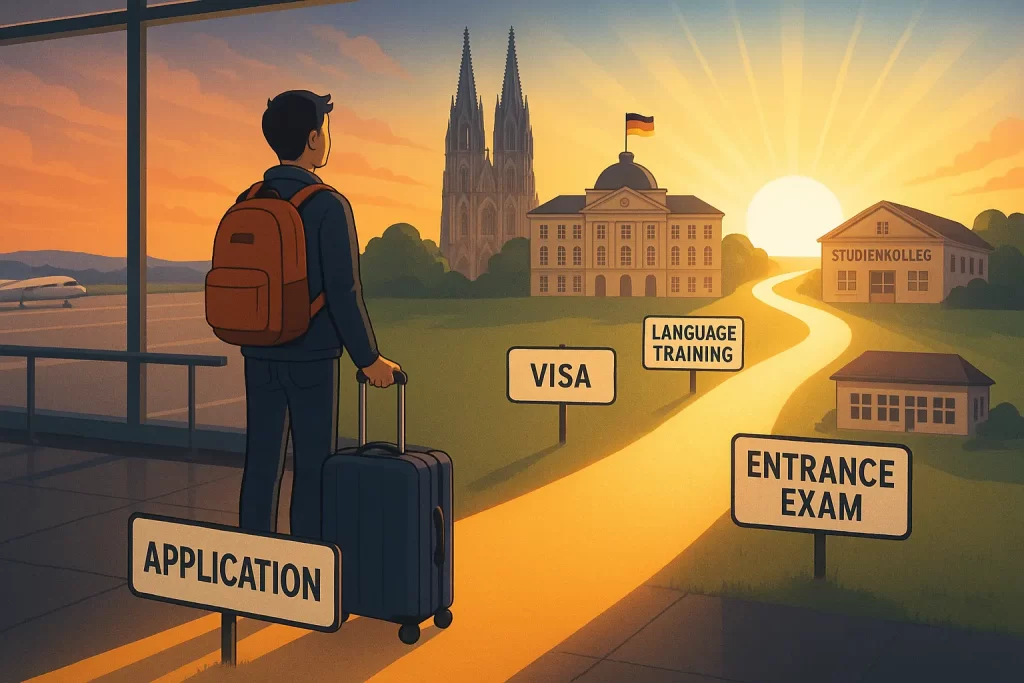
Studying in Germany is an exciting opportunity—and for many international students, Studienkolleg is the first major step toward that goal. From selecting the right course type to handling applications, visas, and entrance exams, every step is a building block in your academic journey.
Yes, the process can seem overwhelming at first. But with clear guidance, good planning, and a support system by your side, it becomes not just manageable—but truly rewarding. Each task you complete brings you one step closer to an internationally recognized degree and a future full of possibilities.
Let Amratpal A Vision be your trusted partner throughout this journey. We provide expert guidance, structured German language training, and step-by-step support—from your first application to your first day in Germany.
Your dream of studying in Germany isn’t far away. With the right support, it starts now.

